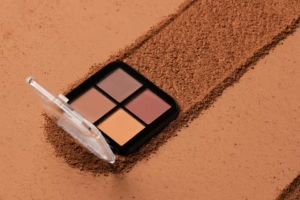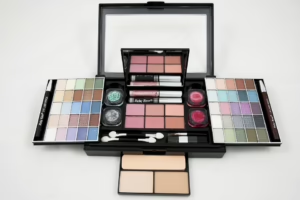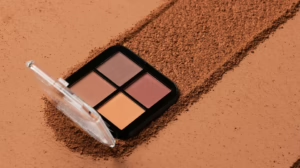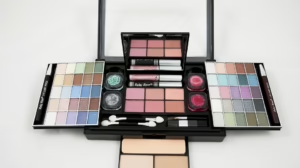Flawless Skin Starts Here: The Best Tips from Top Dermatologists
Achieving flawless skin is often a lifelong journey that involves more than just the right cosmetics. While skincare products play a significant role, expert advice from dermatologists can illuminate the path to radiant skin. In this article, we delve into the best tips from top dermatologists, breaking them down into key categories: skincare routines, diet and lifestyle, treatments, and common misconceptions.
Skincare Routine Essentials
1. Understand Your Skin Type
The first step in any skincare routine is identifying your skin type. Dermatologists generally classify skin into four categories: normal, oily, dry, and combination. Each type has unique needs.
- Normal Skin: Balanced, not too oily or dry; requires basic care.
- Oily Skin: Prone to acne; needs products that control oil.
- Dry Skin: Can be flaky or rough; requires moisturizing products.
- Combination Skin: Features both dry and oily areas; use products that can cater to both.
2. Cleansing
Cleansing is the foundation of any skincare regimen. According to Dr. Joshua Zeichner, a New York-based dermatologist, "Cleansers are essential for removing dirt, oil, and makeup." Choose a gentle cleanser that suits your skin type:
- Foaming Cleanser: Best for oily skins.
- Cream-Based Cleanser: Ideal for dry or sensitive skins.
3. Exfoliation
Exfoliation helps remove dead skin cells, giving your complexion a smoother appearance. Dr. Jessica Wu recommends exfoliating 1-3 times a week, depending on your skin type. Over-exfoliating can irritate the skin, so find a balance that works for you.
- Chemical Exfoliants: Alpha Hydroxy Acids (AHAs) and Beta Hydroxy Acids (BHAs) can provide a deeper cleanse without scrubbing.
- Physical Exfoliants: Scrubs can also be effective but should be used cautiously.
4. Moisturizing
Even oily skin needs moisture. Dr. Samer Jaber emphasizes the importance of hydration: "Using the right moisturizer is key to maintaining a barrier against pollutants and irritants."
- For Oily Skin: Opt for gel-based moisturizers that are non-comedogenic.
- For Dry Skin: Cream-based moisturizers with ingredients like hyaluronic acid, glycerin, or ceramides are beneficial.
5. Sun Protection
Sunscreen is non-negotiable in any skincare routine. Dr. Zeichner states, “The sun is responsible for 80% of visible skin aging.” Use a broad-spectrum sunscreen with at least SPF 30 daily, even on cloudy days. Moreover, make it a habit to reapply every two hours when outdoors.
The Role of Diet and Lifestyle
1. Hydration
Drinking plenty of water is essential for healthy skin. Hydration helps maintain skin elasticity and overall glow. The general recommendation is to drink at least eight 8-ounce glasses of water per day, but individual needs may vary based on factors like climate and activity level.
2. Balanced Diet
Your diet significantly impacts your skin’s appearance. Foods high in antioxidants, such as fruits and vegetables, can help fight the free radicals that contribute to aging and skin dullness. Key nutrients include:
- Vitamin C: Vital for collagen production; found in citrus fruits, strawberries, and bell peppers.
- Omega-3 Fatty Acids: Help reduce inflammation; sources include fish, nuts, and flaxseed.
Limit processed foods and sugars, as they can exacerbate skin issues like acne and rosacea.
3. Sleep
Never underestimate the power of a good night’s sleep. According to Dr. Ava Shamban, sufficient sleep promotes skin repair and regeneration processes. Aim for 7-9 hours each night to maximize skin recovery.
4. Stress Management
Chronic stress can lead to skin flare-ups or exacerbate existing conditions. Incorporate relaxation techniques such as yoga, meditation, or deep breathing exercises into your routine to help manage stress.
Skin Treatments You Might Consider
1. Professional Facials
Regular facials by licensed professionals can help address specific skin concerns, such as acne or hyperpigmentation. According to Dr. Wu, "Facials can also deliver ingredients deeper into the skin compared to at-home treatments."
2. Chemical Peels
Chemical peels are an option for those looking to rejuvenate their skin. These treatments can improve skin texture, reduce pigmentation, and sometimes even promote collagen production. Always consult with a dermatologist to find the right peel for your skin type.
3. Microneedling
This treatment involves tiny needles creating micro-injuries in the skin, prompting natural healing and collagen production. Dr. Jaber notes that microneedling can also enhance the absorption of topical products.
4. Laser Treatments
Laser treatments can effectively target various skin issues like wrinkles, sun spots, and rosacea. However, these should only be performed by certified professionals. Discuss your goals and expectations with your dermatologist to find the most suitable option for you.
5. Prescription Treatments
For severe skin conditions like acne or eczema, prescription medications may be necessary. Topical retinoids are often recommended for acne due to their ability to unclog pores and speed up cell turnover. However, these products can irritate the skin, so it’s best to follow a dermatologist’s guidance.
Debunking Common Myths
1. “You Don’t Need Sunscreen on Cloudy Days”
Many people skip sunscreen when it’s cloudy. However, up to 80% of UV rays can penetrate through clouds, making daily sun protection essential regardless of the weather.
2. “Moisturizers are Only for Dry Skin”
Many believe that oily skin doesn’t need a moisturizer. In reality, moisturizing helps all skin types maintain a healthy barrier. Non-comedogenic options exist for oily skin that hydrate without causing breakouts.
3. “Natural Ingredients are Always Better”
While natural ingredients have their benefits, not all are suitable for everyone. Standard products undergo rigorous testing and often contain preservatives that prolong shelf life. Consult with a dermatologist to determine what’s best for your skin.
4. “Drinking Water Will Clear Your Skin”
Staying hydrated is beneficial, but it won’t alone clear up skin issues. While dehydration can cause skin to appear dull, other factors like genetics, hormones, and diet also play a significant role.
5. “Expensive Products are Better”
Price doesn’t always equate to quality. Many effective skincare products are available at various price points. It’s essential to choose products that match your skin’s specific needs rather than simply opting for luxury brands.
Final Thoughts
Achieving flawless skin is a multifaceted process that requires commitment and knowledge. By following the advice of top dermatologists, you can develop a skincare routine that promotes a healthy complexion. Remember, everyone’s skin is different, and what works for one person may not work for another. Consult with a dermatologist to tailor your skincare regimen to your unique skin type and needs.
Ultimately, the journey to flawless skin doesn’t have a quick fix—it’s about a consistent approach to skincare, a balanced lifestyle, and a bit of patience. Start your journey today, and remember: flawless skin starts here.
References:
- Zeichner, J. (2021). "The Importance of Sunscreen." Journal of Dermatology.
- Wu, J. (2020). "Nutrition and Skin Health." American Academy of Dermatology.
- Shamban, A. (2022). "The Impact of Sleep on Skin Health." Dermatology Times.
- Jaber, S. (2021). "Laser Treatments for Skin Rejuvenation." Clinical Dermatology.
Footnotes:
[1]: Skin types as classified by dermatological standards.[2]: Importance of cleansers in skincare routines.
[3]: Guidelines for facial care and treatments in dermatology.
[4]: Comprehensive skin health assessments.
[5]: Common dietary impacts on dermal health.
This article serves as an informative guide to achieving glowing, flawless skin through practical tips and insights from leading dermatologists. Whether you’re dealing with specific skin concerns or aiming to maintain a radiant complexion, these expert suggestions can provide a roadmap to better skin health.


























Add Comment